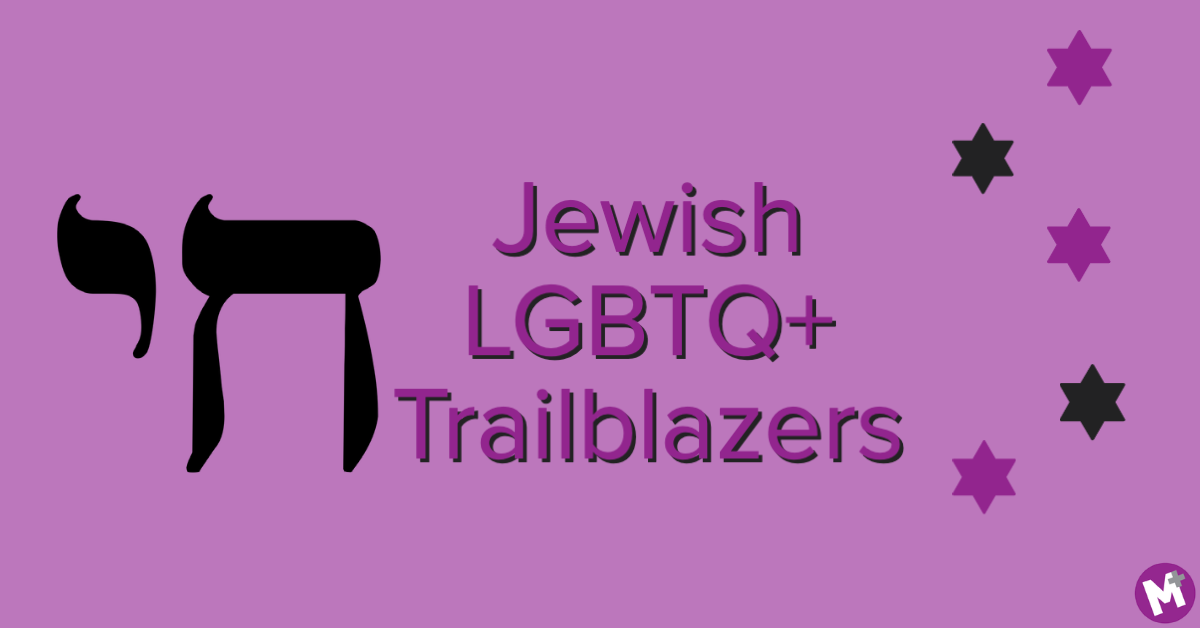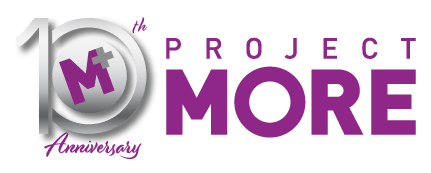
It’s Jewish Heritage Month, which means it’s time to celebrate the wonderful achievements and contributions of Jewish people in the United States. Let’s join in the celebration by recognizing eight iconic Jewish LGBTQ+ individuals for the work they’ve done for the LGBTQ+ community!
[emaillocker id=4438]
1. Betty Berzon
In 1968 Betty Berzon became the first psychotherapist in the United States to come out as gay. She began to treat gay and lesbian patients and by 1971 fought for the American Psychiatric Association to declassify homosexuality as a mental illness. Berzon was a staunch advocate for LGBTQ+ youth in the Los Angeles community and helped to found what has become the L.A. Gay & Lesbian Center, the country’s first social service agency for gay and lesbian people.
2. Rabbi Sandra Lawson
Lawson, who grew up without a formal church experience, converted to Judaism after feeling inspired by a college course and a story of long lost Jewish roots. In 2018, she became the first black, openly gay rabbi in the world. Today, Lawson is known as “Snapchat’s Top Rabbi.” You can follow her on Snap @rabbisandra.
3. Joan Nestle
Lambda Award winning writer and co-founder of Lesbian Herstory Archives, Nestle, a fierce Jewish woman, has been fighting since the 1970s to prevent the erasure of women’s narratives in LGBTQ+ history. The Lesbian Herstory Archives is a collection of lesbian history and culture that seeks to remind people that the lesbian narrative is not one that should be erased, but accessed and celebrated by future generations. If it had not been for Nestle’s work, lesbian culture and history would have been seen through only a patriarchal lens.
4. Harvey Milk
This global icon for gay rights became the first openly gay man to be elected to a major public office in the United States in 1977. Milk ran three times before he was elected to serve as a San Francisco City Supervisor. It is because of his work that the city banned discrimination in public housing, accommodations, and employment on the basis of sexual orientation. The Bay Area’s politician was assassinated in 1987, but today is seen as a martyr for gay rights.
5. Rabbi Stacy Offner
Offner made history in 1988 when she became the first lesbian American rabbi to be hired by a mainstream Jewish synagogue. Not only that, but she was Minnesota’s first female rabbi and the state’s first rabbi ever to be elected chaplain of the state Senate. When asked about the historic firsts, she said, “A lot of those firsts were just a result of where I was standing in line. I never set out to be a first anything.”
6. Irena Fayngold
In her 2005 documentary, Hineini: Coming Out in a Jewish High School, Fayngold paints a realistic picture of what it’s like to confront the tensions between religion and sexuality. Through a teenage perspective she illustrates the determination of one high school student to establish a Gay-Straight Alliance at her school. In showing contemporary Jewish life and internal struggle, her work not only relates to LGBTQ+ youth, but also provides them with representation on screen.
7. Barbra Casbar Siperstein
Barbra Casbar Siperstein, better known as “Babs” was the first openly transgender member of the Democratic National Committee. After her transition, she worked as an advocate for gender inclusion. New Jersey’s “Babs Siperstein Law,” which was signed into law two days before her passing, allows New Jersey residents to amend their birth certificates to reflect their gender identity.
8. Edie Windsor
Edie Windsor got her master’s in mathematics from NYU in 1957. As if that isn’t enough of an accomplishment, she went on to lead the United States federal government to change their definition of marriage. In 2013, in the court case United States vs. Windsor, this force of nature sued the federal government after it failed to recognize her marriage, and attempted to collect an estate tax after her wife’s passing. Because her marriage did not fit the federal government’s definition of marriage, she was excluded from the unlimited spousal deduction that would exempt her from paying the federal estate tax. Section three of the Defense of Marriage Act, which defines marriage as the union of a man and a woman as husband and wife, was deemed unconstitutional based on the fifth amendment as a result of her case, and it required the federal government to recognize same sex marriages.
[/emaillocker]

